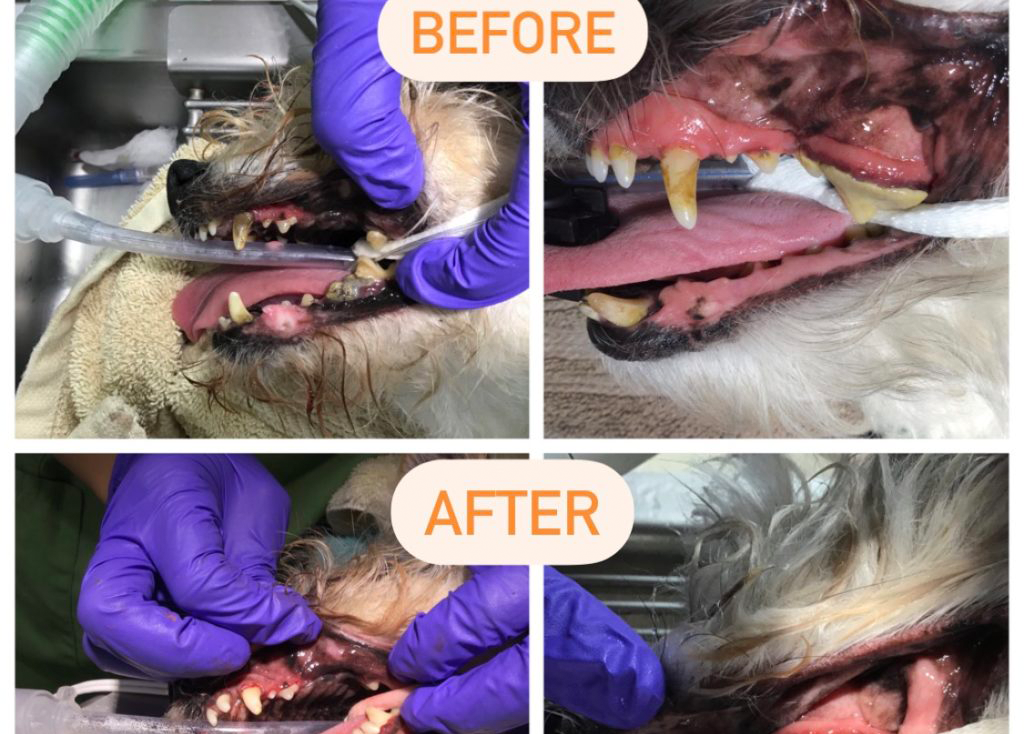Pet Dental Health
February may be National Pet Dental Health Month, but it’s always a great time to think about caring for our pets teeth!
Which pets are at risk for dental problems?
Any dog or cat over 3 years of age has a 70-80% chance of having periodontal disease, making this the number one disease in our pets.
What’s at stake?
Periodontal disease can lead to tooth loss and impact a pet’s overall health by causing pain, inflammatory reactions, and bacteria in the bloodstream that can lead to organ damage and a shortened life span.
What are the symptoms?
Very little! Most pet owners assume if their pet is still eating, they are not in pain, even if bad breath is noticed. But eating is a biological imperative and pets teeth may be hard to examine at home. Even severe dental problems are discovered only during a veterinary visit.
How does periodontal disease happen?
Everyday bacteria form a layer over the teeth called plaque. If left undisturbed, a thick, hard matrix of bacteria and minerals called tartar develops over the surface of the teeth. The bacteria associated with tartar release toxins, which causes inflammation and leads to infection. Infected gum tissue causes gingivitis and gum recession. This can proceed to bone infection, which causes bone loss around the tooth root and loosens the tooth.
Is it possible that home dental care can help my pet?
Yes! If your pet is a puppy or a kitten, gently start training them to allow mouth handling. Gradually add dental wipes and introduce brushing when they are done teething.
If your pet is an adult, a veterinarian should examine your pet prior to starting dental home care. Because dental conditions are often painful, it is important to address existing problems with a dental treatment first.
What is dental home care?
Dental home care is aimed at removing plaque and includes dental wipes, chews, tooth brushing, and water additives. It should be tailored to each situation, but should be started early in life and done daily for best effect.
Which products are best?
Choose from products tested by the Veterinary Oral Health Council, found on the www.vohc.org Do not offer bones, antlers, hooves, or hard nylon toys which can cause tooth fractures.
If I do home care does that mean my pet will never need a dental treatment?
No, we humans brush and floss daily, and we still need dental check ups and cleaning. However, dental home care can reduce the frequency of dental treatments and plays a very important part of caring for your pet. By providing dental home care and dental treatments, you are helping to prevent periodontal disease, our pet’s most common medical condition, and you are helping to assure your pet has a long, comfortable life!



